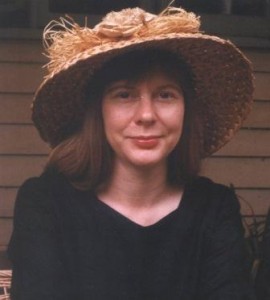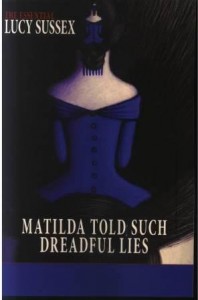1. Who are the short fiction authors you admire (Australian or otherwise, alive or dead)?
Chekhov, for ‘The Lady With a Little Dog’. Mary Fortune, who as Waif Wander wrote 500 pioneering crime stories for the Australian Journal between 1865-1909. James Tiptree Jr, alias Alice Sheldon, the great American science fiction writer. Ellen Davitt’s 1867 ‘The Highlander’s Revenge’, about Gippsland massacres of Aboriginal tribes. She almost certainly interviewed a witness, then wrote the story.
2. What is the most memorable short story you have read? And why does it stand out for you?
Oh, there’s too many to name. I am a reviewer, and scholar of the C19th, a golden age for the short story.
3. What do you like about the short story form?
It enables you to say what you want in a succinct form. The trick is to find something that will fit into that form. If it won’t then you’ve got a novel on your hands, a different kettle of fish altogether.
4. How would you describe your own writing?
Feminist, playful, po-mo (but never po-faced), using realism and non-realism in a way that was yesterday called slipstream, today interstitial. Two blokes said my stories were too clever—since when is a woman too clever, I ask?
5. Which of your stories are you most fond of right at this moment and why?
I tend to like a story when I’m working on it, not so interested in them afterwards. But of the recent stories, I like ‘Alchemy’, for forcing me to write about ancient Babylon, and ‘Thief of Lives’, which is about writers as psychic vampires.
6. Where do the ideas for your stories come from? (Take us through an example)
With ‘Alchemy’ it was that the first chemist was a female Babylonian perfumier named Tapputi. When you linked that with a passage from the Biblical Book of Enoch, about fallen angels teaching women the secrets of enamelling, making perfume etc. in exchange for sexual favours…that set off the narrative. I had to research domestic life in old Babylon, which was fun. It turned into a love story. Then towards the end, I discovered that the US army had demolished part of the historical site of Babylon to build a base. That went in too. All grist to the mill.
7. What is your writing process – from idea to publication? (Do you go it alone or are others involved?)
Usually me alone, but sometimes a writers’ group is involved, if I think there’s a problem with the story that I can’t quite fathom. Then, of course, you can get 15 different suggestions on how to solve it!
8. Do you feel the short story form is valued in Australia?
Not as much as it should be.
What makes you say this?
Readers don’t realise its possibilities, except in genre fiction (horror, sf, fantasy), where there is genuine appreciation of the form. The problem is that most Australian short stories are usually published in small literary mags, with limited readership.
9. How do you feel about your work being published in non-print forms such as digital and audio?
The more the merrier.
10. What advice would you like to offer Spineless Wonders?
Lucy Sussex was born in New Zealand in 1957. She has degrees in English and Librarianship from Monash University, and is a freelance researcher, editor and writer. She has published widely, writing anything from literary criticism to horror and detective stories. In addition she is a literary archaeologist, rediscovering and republishing the nineteenth-century Australian crime writers Mary Fortune and Ellen Davitt. Her short story, `My Lady Tongue’ won a Ditmar (Australian Science Fiction Achievement Award) in 1988. In 1994 she was a judge for the international Tiptree award, which honours speculative fiction exploring notions of gender. Her collection, Matilda Told Such Dreadful Lies: The Essential Lucy Sussex was published this year by Ticonderoga. You can read the launch speech here. Thief of Lies, a collection of four stories, was published by Twelfth Planet Press in July this year.
Find out more about Lucy from her website:


